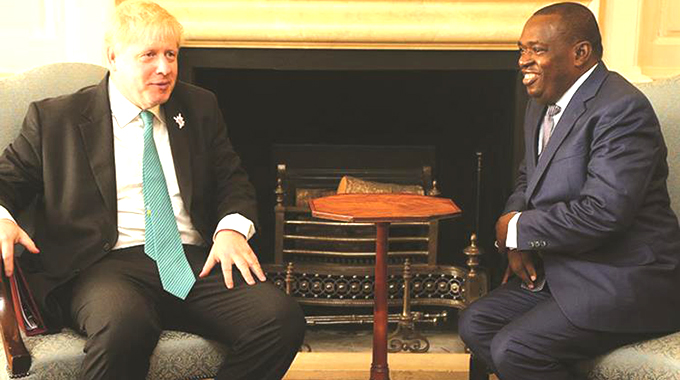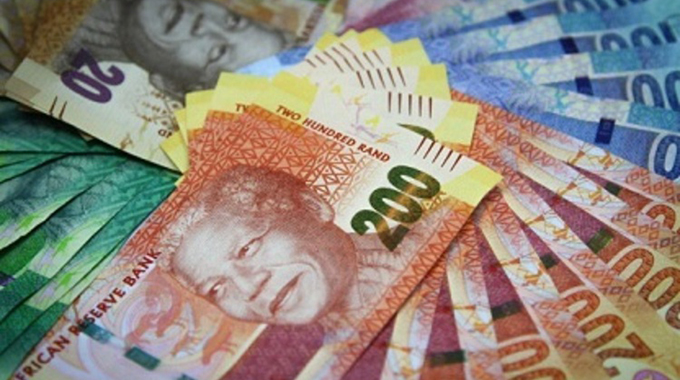Zimbabwe can rise again . . .

Lawson Mabhena News and Politics Editor
On Wednesday, a new year begins, marking a countdown to three years after “Operation Restore Legacy” in November 2017 that ushered in Zimbabwe’s Second Republic.
The economy is expected to take centre stage in 2020, and all eyes will be on President Mnangagwa and his Government, whose sweeping economic reforms must now start paying dividends.
In particular, the end of austerity will come as a relief to ordinary Zimbabweans, although hard work will be the order of the day during the “growth, productivity and prosperity” period.
The Transitional Stabilisation Programme (TSP) which began in September 2018 will end in December 2020, paving way for the First Five-Year National Development Plan (2021-2025).
The Second Five-Year National Development Plan will run from 2026-2030, the last stage in the attainment of Vision 2030.
To achieve Vision 2030, Zimbabwe will need the support of regional and international partners.
No country exists in a vacuum. President Mnangagwa’s engagement, re-engagement and rapprochement foreign policy thrust is a realistic attempt to co-exist in the global village.
The year 2019 will be remembered as the year SADC threw its full weight behind Zimbabwe. The regional bloc, in August, declared October 25 as a day of solidarity with Zimbabwe against illegal sanctions stifling economic growth in the country and the region.
Foreign Affairs and International Trade Minister Dr Sibusiso Moyo, in September, presented a paper to Cabinet, indicating that Zimbabwe lost about US$98 billion due to illegal sanctions that were imposed after the Land Reform Programme of 2000.
According to the paper, Zimbabwe lost an estimated US$42 billion in revenue, US$4,5 billion in bilateral donor support, US$12 billion in loans from international financial institutions, US$18 billion in commercial loans and a GDP reduction of US$21 billion.
Furthermore, significant progress that the country had made in the development of infrastructure, health, education and other social service delivery systems, according to the report, has been reversed by the sanctions imposed by the United States of America under the Zimbabwe Democracy and Economic Recovery Act (ZIDERA) of 2001.
“Zimbabwe’s access to international credit markets was blocked after the enactment of ZIDERA. The country has been forced to virtually operate on hand-to-mouth, and there has been a significant build-up of external debt arrears.
“This unfavourable development has worsened the country’s creditworthiness as the country’s international financial risk profile escalated,” the paper presented by Minister Moyo reads.
“This subsequently led to the drying up of traditional sources of external finance from the International Financial Institutions (IFIs), with the country receiving no support from the African Development Bank since 1998, the International Monetary Fund since 1999 and the World Bank since 2001.”
Clearly, the claim by Western countries that the sanctions are targeted at individuals and do not hurt ordinary Zimbabweans is nothing, but a blue lie.
The sanctions have been a major determining factor in the rapid economic decline experienced over the past two decades.
Admittedly, poor governance, corruption and patronage were also contributory factors under the rule of the late former president Robert Mugabe.
That is why President Mnangagwa and his Government have gone all out to correct ills of the past.
Political and economic reforms promoting democracy and restoring economic stability have been instituted, while Harare has been mending relations with Western countries and IFIs.
Sanctions imposed on Zimbabwe are against the spirit of re-engagement and liberalism being promoted by the Second Republic.

ABOVE: Thousands of Zimbabweans participate in the SADC Anti-Sanctions Day march on October 25, 2019. RIGHT: Foreign Affairs Minister Sibusiso Moyo meets then British Foreign Minister Boris Johnson as part of Harare’s re-engagement drive
Britain and America should now play their part in undoing the damage they have done to Zimbabwe’s economy.
The act of sabotage on October 1, 2019 by the US must never be repeated in 2020.
The US banned Zimbabwean diamonds over unverified allegations of the use of forced labour in the extraction of gems in the Marange fields.
The economy took a big knock as a result. Zimbabwe was expecting to produce 4,1 million carats of diamonds in 2019, up from 2,8million carats in 2018.
At the peak of production in 2012, the country’s output was 12 million carats.
The ban, which is an extension of sanctions, is a deliberate attempt to ensure that domestic economic policies fail.
The flip-side, however, is that if the TSP was a poor policy, it would not need help to fail. Clearly, there is some sort of fear that Zimbabwe could be on an economic recovery path.
On her part, Britain has been engaging well with Zimbabwe. Special envoys have been dispatched and although nothing has been said in public, expectations are high that 2020 could be a good year for Zimbabwe-United Kingdom relations.
British Prime Minister Boris Johnson is on record admitting that his country contributed to the demise of the Zimbabwean economy.
Writing for The Telegraph in February 2015, Mr Johnson — who was then London mayor — said his country, under the leadership of Mr Tony Blair, had played a “shameful” role in Zimbabwe’s economic woes.
“There had to be a ‘willing buyer, willing seller’. The British government agreed to fund the arrangement, compensating the former colonial farmers for land that they gave up. Under that arrangement the white farmers were able to survive — more or less; Zimbabwe remained economically viable — more or less.
“And then in 1997, along came Tony Blair and New Labour, and in a fit of avowed anti-colonialist fervour they unilaterally scrapped the arrangement. The overseas development minister, Clare Short, made it clear that neither she nor Blair gave a stuff about the former colonial farmers,” wrote Mr Johnson on the occasion of Mr Mugabe’s birthday.
If Mr Johnson is an honourable man, he will play his part in forging a new relationship with Zimbabwe.
The new Zimbabwe being built by President Mnangagwa needs partners in turning around the economy so that the country can contribute meaningfully to the family of nations.
With the help of friends, both in the region and abroad, Zimbabwe can rise again. But first, sanctions must go.









Comments